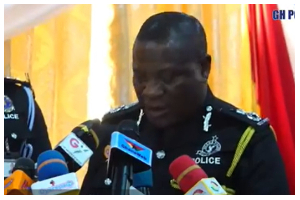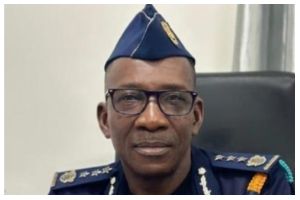By Kwame Okoampa-Ahoofe, Jr., Ph.D.
It is now becoming quaintly clear to me why the bulk of his most ardent followers and admirers almost invariably prefer to pick on just a single sentence of then-Prime Minister Kwame Nkrumah’s Declaration of Ghana’s Independence Speech in order to rapturously tout the purported pan-Africanist credentials of the African Show Boy, almost as if Ghanaians cared far less about themselves and their collective destiny than those of others, even fellow continental Africans! For there is not much that is substantive in, perhaps, the most overrated premiership address of the Twentieth Century, in much the same way that President J. A. Kufuor did not seem to have had much that was substantive to relate to his fellow countrymen and women on Ghana’s Golden Anniversary celebration.
To be sure, the “Kufuorian” speech, aside from its gapingly embarrassing grammatical slips, at least in the version published by the global press, did not contain much that was edifying for Ghanaians, other than the superfluous fact of him having, finally, decided to publicly acknowledge the historicity of the founding-dictator of the so-called Convention People’s Party (CPP) as the first Prime Minister, and later Executive President, of Ghana. Even so, it was pathetically ironic to hear Mr. Kufuor prefix Nkrumah’s name with an unearned doctoral honorific, while Dr. Joseph (Kwame Kyeretwie) Boakye-Danquah who had actually earned his doctorate in the Philosophy of the Mind and Logic was simply and irreverently referred to as J. B. Danquah. Interestingly, to-date, the Nkrumah fanatics continue to shamelessly indulge in this flagrant historical mendacity.
Needless to say, Nkrumah’s March 6, 1957 speech is fascinating for the simple fact that it starkly and deliberately fails to acknowledge the most indisputably significant component of those who indefatigably fought for Ghana’s liberation from British colonial imperialism. And the group in reference is, of course, Ghana’s Trades Union Congress (TUC). The latter was the critical force that formidably channeled the otherwise spontaneous and inchoate fury of the Nii Kwabena Bonnie-inspired boycott of European traders and merchants into an organized political liberation front or movement.
Instead, we have Nkrumah effusively thanking “the people of this country, the youth, the farmers, the women who have so nobly fought and won the battle”…. And then, “the valiant ex-servicemen who have so cooperated with ME in this mighty task of freeing our country from foreign rule and imperialism.”
From the foregoing patently egocentric allusion to himself, ME, as the prime mover of Ghana’s independence movement and struggle, it becomes eerily clear that the battle had, indeed, not yet ended, as the Show Boy rather facilely and deviously wanted his audience to believe. Of course, the epic battle lay some nine years into the future, and it would be a battle born of regret and ineffable disappointment. Thus, when he exhorts that: “We must change our attitudes and minds. We must realize that from now on we are no longer a colonial but free and independent people,” the Show Boy could not have been farther from the truth. For if anything at all, the unsuspecting and diligent Ghanaian had just been thrown out of the skillet – or frying pan – into the inferno of neocolonialism viciously orchestrated by one of her/his own. We were in practical terms, of course, no longer British subjects, although Her Majesty’s ambassador, the Governor-General, was still the theoretical supervisor of our national affairs. Sir Charles Arden-Clarke would continue to act as such for the next leap year.
Of course, in exhorting his countrymen and women to “change our attitudes and minds,” the Show Boy was slyly, albeit unwittingly, warning them to brace for a decidedly and unabashedly dictatorial and fascist “Wind of Change.” But that Nkrumah had flagitiously presumed the yeoman’s struggle for our collective anti-colonial liberation by his predecessors to have either been a complete waste of time or patently nonexistent, becomes quizzically evident when the “Nkroful Prometheus” further adds that: “We are going to demonstrate to the world, to other nations, that we are prepared to lay our foundation – our own ‘African Personality.’”
At this juncture, one begins to wonder what our medieval legendary monarchs of Ghana (whose nominal glory we had just assumed), Mali and Songhai, among several more others, had been about. A Euro-colonial or Arabo-Islamic Personality? Having thus curiously obliterated the hallowed memory of his predecessors, it becomes all too logical for the Show Boy and his minions and lackeys to proudly envisage themselves as PIONEERS, for prior to their advent on the continental African political podium, all that had transpired had been troglodytic gibberish, in Conradian terms. The unique holder of the center had effectively arrived. If so, then it also made perfect sense that Nkrumah would deafeningly ignore his former United Gold Coast Convention (UGCC) sponsors, mentors and benefactors in the salutation of his, admittedly, landmark declaration of modern Ghana’s sovereignty from British colonial rule. The latter observation would also seal the Show Boy’s political doom by guaranteeing that his clearly megalomaniacal leadership would neither find legitimacy nor respectability among the teeming ranks of the organized opposition.
Still, as to whether, indeed, Ghanaians had voted Nkrumah to power in order to either please the rest of the world, rather superfluously, by demonstrating “that[,] after all[,] the black man is capable of managing his own affairs,” or that Ghana’s assertion of her sovereignty could only be deemed genuine on the basis of the total decolonization of the African continent, was moot to almost every one of his constituents, except “The Osagyefo” himself. For instance, nobody in living memory remembered either the Africanity – or the African Personality – of either King Kwamena Ansa(h), of Oguaa, or Emperor Osei-Tutu, of Great Asante, being impugned. And yet in the exuberant imagination of the African Show Boy, the African was yet to take his place among the global comity of humanity.
For those of us scions – both biological and ideological – of Dr. Joseph (Kwame Kyeretwie) Boakye-Danquah, the most risibly hypocritical sentence – no pun intended, of course – of Mr. Nkrumah’s landmark declaration of Ghana’s independence from British colonial rule is the following: “I want to ask you to pause for only one minute and give thanks to Almighty God for having led us through our difficulties, imprisonments, hardships and sufferings, to have brought us to our end of troubles today.”
“Our end of troubles”? Precisely what did the double-tongued African Show Boy mean? The beginning of our troubles? If so, then it definitely cannot be gainsaid that Nkrumah was, perhaps, the most astute and pragmatic African leader in the modern era, if only for having poignantly foreseen the Pandora’s Box of avoidable tribulations that he was poised to sadistically unleashing against his own people. If the preceding has validity, then he couldn’t in anyway have candidly meant the same when Prime Minister Nkrumah, in the very opening lines of his Independence Address so confidently announced: “At long last, the battle has ended! And thus, Ghana, your beloved country is free forever!”
For some curious reason, Dear Reader, the only image of legitimate African leadership that I could envisage was that of the recently deposed President Mamadou Tandja, of Niger, when I came across the following line from the Show Boy’s Declaration of Independence: “And my last warning to you is that you are to stand firm behind us so that we can prove to the world [not to ourselves] that [really] when the African is given a chance, he can show the world that [indeed] he is somebody!”
And then, of course, when the Show Boy declares, “We have awakened. We will not sleep anymore. Today, from now on, there is a new African in the world!” President Nkrumah could only have been prophesying about the democratically tempered tenures of the Busia- and Kufuor-led Progress Party (PP) and the New Patriotic Party, respectively, and, of course, to a lesser extent the Limann figure-headed People’s National Party (PNP).
Long Live Boakye-Danquah’s Ghana!
*Kwame Okoampa-Ahoofe, Jr., Ph.D., is Associate Professor of English, Journalism and Creative Writing at Nassau Community College of the State University of New York, Garden City. He is also a Governing Board Member of Danquah Institute (DI), the Accra-based pro-democracy think tank, and the author of 21 books, including “Ghanaian Politics Today” (Atumpan Publications/Lulu.com, 2008). E-mail: okoampaahoofe@aol.com.
###
Opinions of Monday, 8 March 2010
Columnist: Okoampa-Ahoofe, Kwame
Stretching for Meaning from Nkrumah's Independence-Day Address
Entertainment













